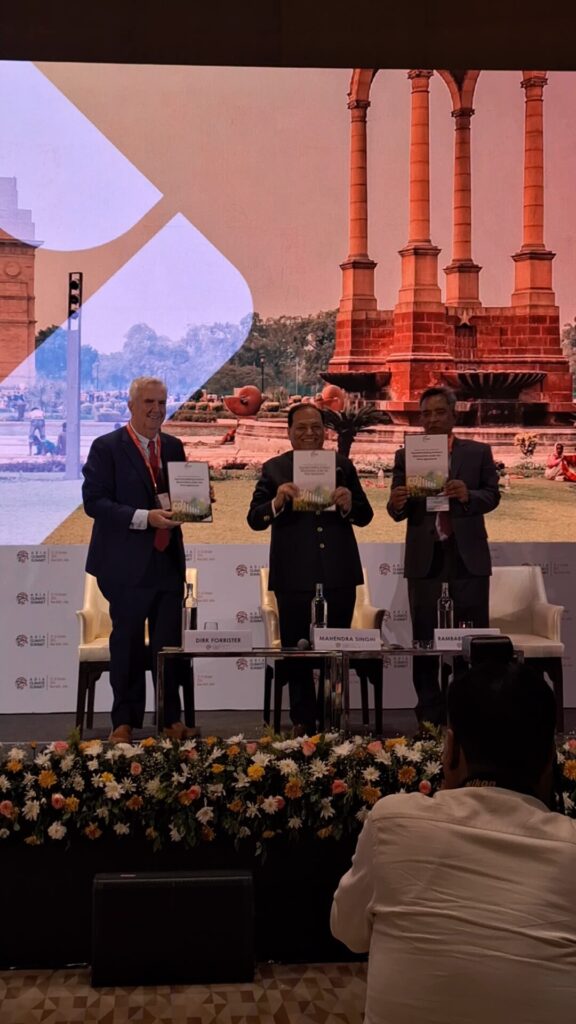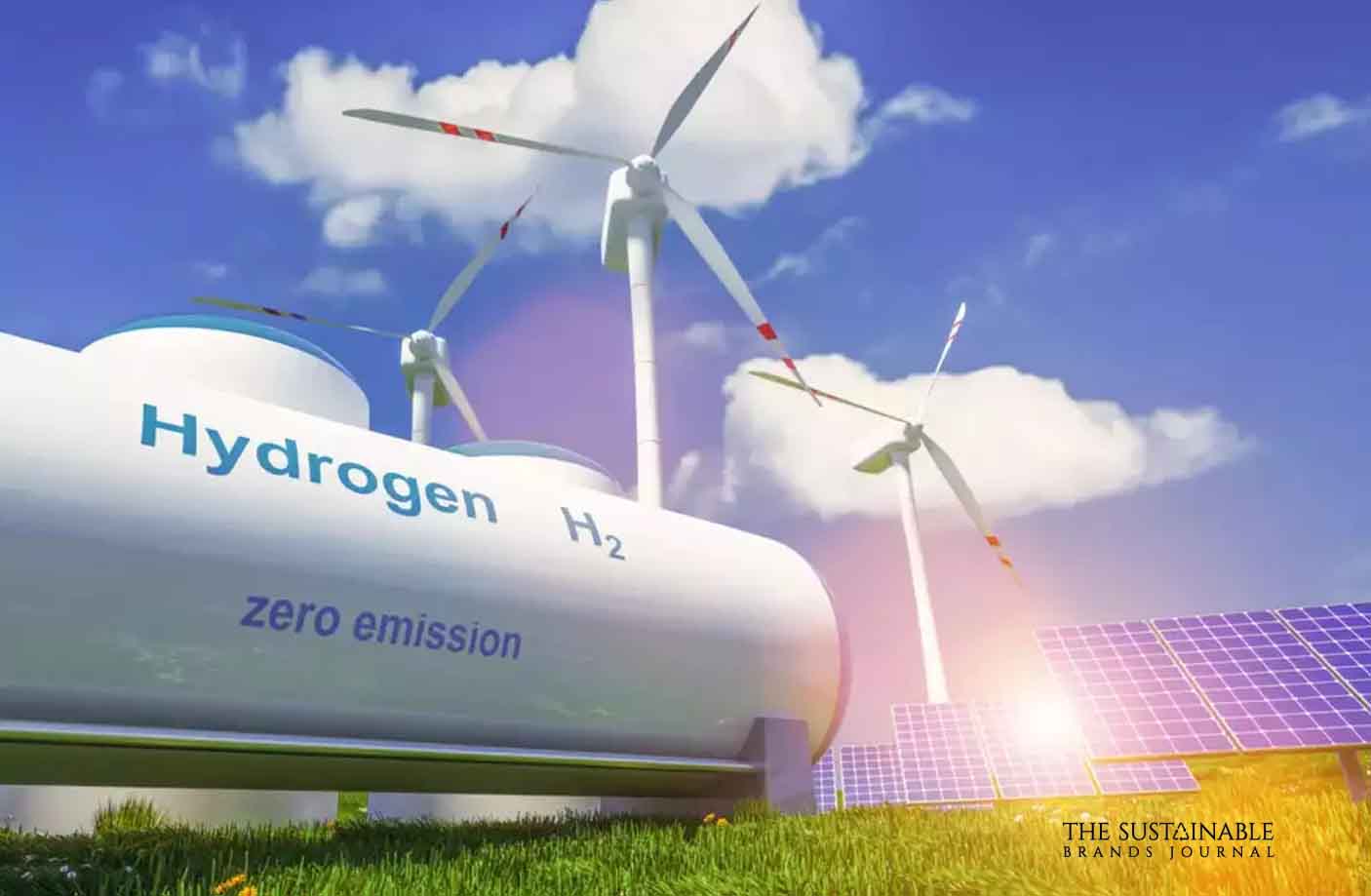
Asia Climate Summit 2024: Advancing Carbon Markets and Climate Action in New Delhi
Date: October 22-24, 2024
Location: New Delhi
Event Coverage by: The Sustainable Brands Journal
The Asia Climate Summit 2024 in New Delhi brought together key industry experts, government officials, and policymakers to discuss carbon markets, sustainable growth, and climate action. One of the central topics of the summit was how Asia’s carbon markets can support the global journey towards net-zero emissions. The summit also highlighted the role of advanced technologies and climate finance in scaling up sustainability efforts ac

Carbon Markets Session 1: Building a Unified Climate Action Narrative
The first session, led by Mahendra Singhi MD, Dalmia Bharat Group with panelists Dirk Forrister and Ramababu Paravastu, focused on India’s evolving climate strategy and the growing significance of carbon markets. The speakers emphasized the need to align global efforts to combat climate change, supported by policy frameworks, financial mechanisms, and carbon pricing models.
Mahendra Singhi’s Inaugural Speech: India’s Climate Leadership
In his opening remarks, Mahendra Singhi highlighted India’s commitment to climate action through several themes:
Eradicating the suffering caused by climate change.
Promoting global unity among leaders to tackle climate challenges collaboratively.
He emphasized that India has an opportunity to become a leader in carbon markets, especially with the growing importance of Article 6.2 of the Paris Agreement. Singhi outlined the role of the global financial system in accelerating innovations like green hydrogen, carbon capture, and carbon storage (CCUS). These technologies, he noted, will play a vital role in building adaptation and resilience infrastructure.
Mahendra Singhi also emphasized close collaboration with the Indian government and proposed four pillars for Viksit Bharat 2047 (Developed India 2047):
Make in India
Sustainable Agriculture
Environmental Sustainability
Women-Led Growth
Describing the summit as a “catalyst for action,” Singhi invoked a quote by Swami Vivekananda:
“We are what our thoughts have made us; words are secondary.”
Dirk Forrister on the Importance of Compliance Markets
Dirk Forrister, President of the International Emissions Trading Association (IETA), discussed the emergence of carbon markets in Asia and their potential to drive compliance with national and global emission targets. He emphasized the importance of Article 6 of the Paris Agreement, stating that working within its framework can create opportunities for stronger Nationally Determined Contributions (NDCs).
Forrister underscored the importance of compliance markets in achieving net-zero emissions, stressing that regulatory frameworks are essential to the success of carbon markets.

Ramababu Paravastu on Accelerating Climate Action through Article 6
Ramababu Paravastu, an advisor to the World Bank, highlighted the importance of accelerating the operationalization of Article 6. Reflecting on past challenges with Certified Emission Reductions (CERs), he explained how the Article 6.2 and 6.4 mechanisms can drive deeper climate action.
Paravastu noted that Asia is currently leading in carbon market development, driven by demand for energy storage, carbon storage, and green hydrogen. He cited a FICCI survey, which revealed a need for $100 billion in investments to build carbon storage facilities and green hydrogen infrastructure.
He also emphasized the importance of bilateral agreements and creating demand signals to operationalize carbon markets effectively.
Session 2: Leveraging Carbon Markets for Sustainable Growth
The second session focused on leveraging carbon markets, advanced technologies, and climate finance to drive sustainable growth. Speakers included Mahendra Singhi, Shalabh Tandon, and Sanchayan Chakraborty.
Key Takeaways:
Role of Carbon Credits in the Cement Industry: Mahendra Singhi explained how the cement industry can achieve net-zero emissions by adopting carbon credits and energy-efficient technologies.
Monetization of Carbon Credits: Sanchayan Chakraborty discussed the growing demand for carbon credits from large industries and the importance of investing in sustainable enterprises. He also warned that climate change could push 10 crore people into poverty, with 80% of the impact being felt in Asia and Africa.
Mission CCUS and Green Hydrogen for Net Zero: The speakers emphasized the importance of Carbon Capture, Utilization, and Storage (CCUS) in India’s journey to net-zero. The Mission CCUS initiative, supported by the Indian government, aims to integrate carbon capture technologies into thermal power plants.The speakers highlighted that achieving net-zero emissions requires green hydrogen as well, despite its high production cost. A stable carbon pricing mechanism—at least $50 per ton—will be crucial to incentivize green hydrogen adoption and reduce dependency on fossil fuels.
Conclusion: Asia’s Carbon Market at the Forefront of Climate Action
The Asia Climate Summit 2024 underscored the growing importance of carbon markets, climate finance, and advanced technologies in addressing climate challenges. India, with its strong government backing and increasing demand for sustainable solutions, is poised to lead the way in developing robust carbon markets.
The summit emphasized that achieving net-zero emissions will require close collaboration between governments, industries, and financial institutions. Key technologies like green hydrogen and CCUS will play an essential role, supported by stable carbon pricing mechanisms.
Through compliance markets, bilateral agreements, and Article 6 frameworks, Asia is emerging as a key player in the global effort to combat climate change. The message from the summit was clear: “The time for action is now.”
With the right investments, policies, and collaboration, carbon markets can become a powerful tool for building a sustainable, resilient future for India and the world.

Prachi, an accomplished Chief-Editor at The Sustainable Brands Journal, has 15+ years of experience in Europe, the Middle East, and India, managing 90+ global sustainable brands. She’s a prolific writer in sustainability, contributing to various publications. Prachi’s unwavering passion and expertise make her a recognized authority, driving positive change and inspiring a sustainable future.





